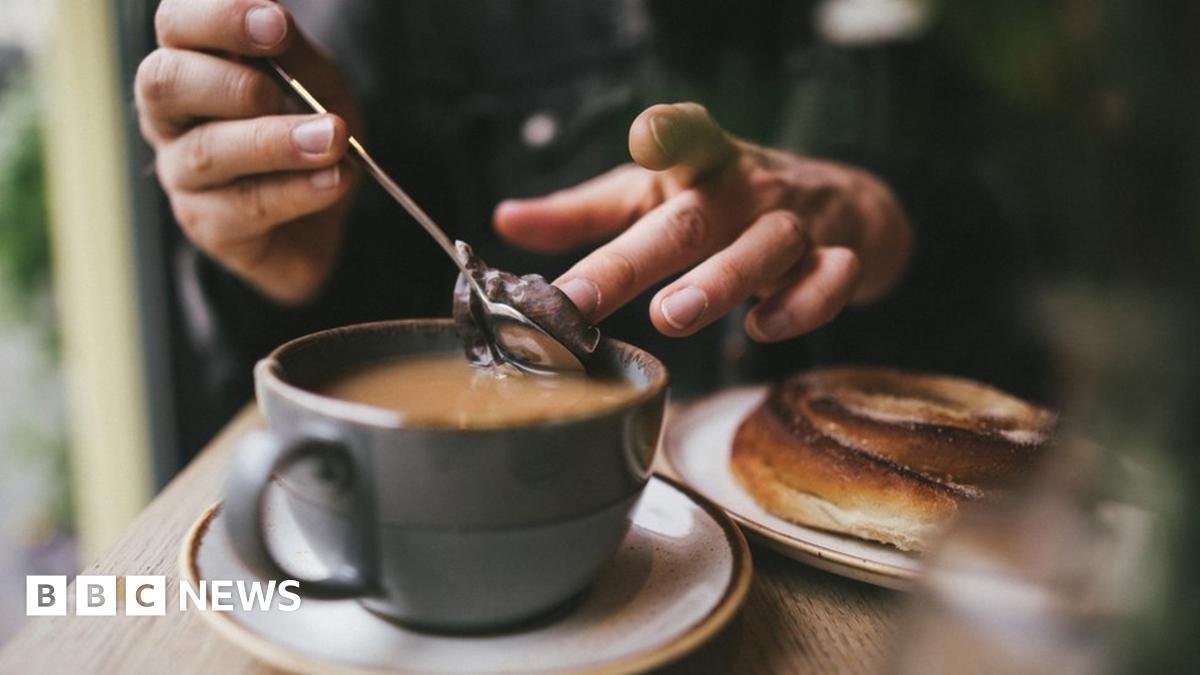Gyakuto
Senior Master

US scientist recommends adding salt to make perfect cup of tea
The US embassy describes Prof Michelle Francl's suggested tea recipe as an "unthinkable notion".
Follow along with the video below to see how to install our site as a web app on your home screen.
Note: This feature may not be available in some browsers.

Being perhaps a little more serious, it sounds like they’re getting at mitigating bitterness, which comes up in coffee from time to time.
US scientist recommends adding salt to make perfect cup of tea
The US embassy describes Prof Michelle Francl's suggested tea recipe as an "unthinkable notion".www.bbc.co.uk
Thats exactly what the logic is. The issue though, if you're using it for a purpose other than just the taste/caffeine, the bitterness is actually important. Same for coffee.Being perhaps a little more serious, it sounds like they’re getting at mitigating bitterness, which comes up in coffee from time to time.
most of the points raised in this video are relevant for tea, as well.
I'm a kettle person. I'm probably strange but boiled kettle water doesn't seem the same as microwaved hot water. The taste seems to be different. I guess one can say that it's like how microwaved food doesn't taste the same as food on the stove.Step one for making better tea in the US would be to purchase a kettle. I don’t think most people have one.
I'd be curious what the numbers are on that. Most people that I've talked with about the topic have a kettle, but I'd imagine that's not representative of the US as a whole.Step one for making better tea in the US would be to purchase a kettle. I don’t think most people have one.
Im curious too. I’d be shocked if it’s over 20% of US households, though. Higher in Canada.I'd be curious what the numbers are on that. Most people that I've talked with about the topic have a kettle, but I'd imagine that's not representative of the US as a whole.
I also think it'd be different in the different regions
Why would you drink coffee or tea for other than taste or caffeine? I don’t get it. I feel silly, but if you’re not drinking it for taste and you’re not interested in a pick me up, what else is there?Thats exactly what the logic is. The issue though, if you're using it for a purpose other than just the taste/caffeine, the bitterness is actually important. Same for coffee.
I’m not surprised. You’re a big tea drinker, if I remember correctly.I have a kettle, I have about 3 actually, and they are for tea... not coffee.... I have other things for coffee...not for tea......
I was, before gastritis.... hope to be again some dayI’m not surprised. You’re a big tea drinker, if I remember correctly.
You know.... I've been there...several times.... and I STILL haven't found the tea in the harborEveryone knows tea belongs in the proper place. The Boston Harbor, for example.
Why would you drink coffee or tea for other than taste or caffeine? I don’t get it. I feel silly, but if you’re not drinking it for taste and you’re not interested in a pick me up, what else is there?
I’m very curious. I am not a scientist, but I know a lot more about coffee than most people. So it’s pretty uncommon for something like this to be totally unfamiliar to me. But I have never heard anything like an association with bitterness and health. If you can find any link to get me started, I am super curious.Keeping this simple because I'm not an expert, and also not at my laptop to provide any specific references:
For health reasons. I can't speak to coffee as much, but certain teas can be great for supporting different health things. And bitters help with some issues, so a bitter taste in your tea can be part of that. For instance, I'm not a fan of the taste of green tea, but I'll still drink it because it's helpful.
With coffee, what comes to mind is people drinking to help with hangovers. I'm not a coffee drinker, but bitters help settle your stomach a bit, due mostly to the taste and how your body reacts to that, so they can help with hangovers.
If I haven't by sunday send me a reminder. Probably not going to tonight, and I might forget in the morning. It's really interesting cause it didn't make sense to me when a doc first explained it to me, but the research seems to be there if you know what to look for.I’m very curious. I am not a scientist, but I know a lot more about coffee than most people. So it’s pretty uncommon for something like this to be totally unfamiliar to me. But I have never heard anything like an association with bitterness and health. If you can find any link to get me started, I am super curious.
